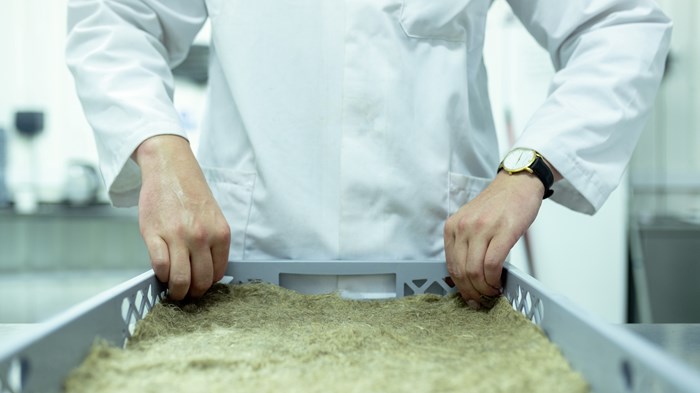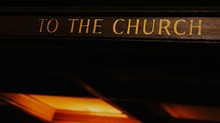Scientists Are Reporting Hostility From Their Own Churches. Why?

“How was I treated in the church as a scientist? Man, that’s a trigger question for me. The simple answer is, not very well. Sadly, our long history of often experiencing rejection or simply being ignored is disillusioning for me.”
“I have encountered more hostility as a scientist in a world of Christians, than I have as a Christian in a world of scientists.”
Two scientists, two replies to how they are received in our churches, and neither reflects well on the Body of Christ. It is no wonder that many scientists keep their heads down and don’t draw attention to their day jobs. But that does not mean they are absent in our churches.
Pew estimates that nearly 13% of the American workforce is found in one of 74 STEM (Science, Technology, Engineering, and Math) professions. Sociologists Elaine Howard Ecklund and Christopher Scheitle have found that about 12.4% of evangelicals and 11.9% of mainline Protestants claim that their occupation is science-related.
The number of STEM professionals in the church could grow, significantly. Barna found that over 50% of youth group teens “aspire to science-related careers.”
The question, then, is how do we treat the scientists, both current and aspiring, in our pews? And why do so many report hostility or rejection?
The Priesthood of all Scientists
Martin Luther laid the foundation for how many Protestant churches understand ministry. It is the entire body of Christ—not just the work of the professional clergy—that composes the “priesthood of all believers.” This includes the farmer and barber as well as the teacher, engineer, and the neuroscientist. They all do ministry, but that may not always be obvious. It might take a little imagination to understand the priestly work of the STEM professionals within our churches.
A good number of them seek to read the book of nature, the other book that God the Creator has written for us. They stand in the lineage of Christians in the sciences who have sought to understand God through both Scripture and the natural world. They study God’s handiwork in biochemical processes and in how stars form and in the laws govern the smallest imaginable particles. They seek to understand how life works and how nature interacts with nurture. In a paraphrase of 17th century astronomer, Johannes Kepler, they think God’s thoughts after him.
Another portion of these STEM professionals teach what those investigations into the book of nature have revealed. They inspire our children (and us) with the magnificence of the created order, nurture our curiosity, and make space for inquisitive minds to learn more about the God who created and continues to create. Their images and narratives can inspire us to worship.
Probably the largest number of them seek to glorify God by applying science to address real needs. They play major roles in the effort to heal the sick, provide food for the hungry, build shelter for the stranger, and fix broken things. They create the technologies, energy solutions, materials, and medicines that have helped improve the quality of life for the Earth’s 7.8 billion people. They also help identify where technological progress is misaligned with human well-being.
So we see here that the ministry of the scientist is in discovery and teaching about the glories of God’s handiwork and in the ways they use their God given talents to contribute to human flourishing.
And yet in spite of this priestly ministry, many encounter hostility or feel ignored within the body of Christ.
Scientists for the Church
My father is one such scientist, a traffic engineer whose job it is to make sure you can get in and out of the parking lots of shopping malls. My mother recounts the story–I was quite young at the time–of his offering of time and talent. Our church was renovating their parking lot. Dad was not particularly active in the church at the time, but he willingly offered to help. His offer was met with silence. No matter the intent, the silence communicated that his vocation, his offer of ministry, did not matter to the church.
As those opening quotes tell us, this kind of experience is far too common in our churches. It may have changed for some in our churches. As frontline workers, medical professionals (and to a lesser extent teachers) have certainly had a higher profile since the pandemic began. Many offered to help joining task forces and coordinating committees have helped to guide our congregations over the past year. While this work has leveraged their scientific training to the benefit of the church, they may also have experienced increased hostility by those who have disagreed with their recommendations especially if they limited in-person worship.
But I don’t think the pandemic has changed much for how our churches engage all of the others who read the book of nature and try to apply that knowledge to every aspect of God’s majestic creation. If anything, the pandemic has occupied so much of our attention, they have simply been ignored.
Which is a shame because these STEM professionals among us bring a plethora of knowledge and skills and kingdom-oriented intent to church. They seek to be good Samaritans with their God-given abilities. How can we undo the past hostility and rejection? How do we flip the script and tell them they matter to the church?
The congregation of my early childhood did not convey to my father that his engineering talents mattered. And in my lifetime, he has never been active in church. I can’t help but wonder how different it could have been if they had asked him to help with that parking lot.
Drew Rick-Miller is Co-Director of Science for the Church, a ministry that seeks to strengthen the church by engaging science. Previously, he spent over a decade as a grants officer at the John Templeton Foundation. Drew studied literature and physics at Northwestern University before attending Princeton Theological Seminary (M.Div.) where he met his wife, a Presbyterian pastor.
Science for the Church will present a virtual workshop with Made to Flourish starting on April 20, 2021 focusing on science as Christian vocation and how churches can minister for and with scientists. Sign up here.
The Better Samaritan is a part of CT's
Blog Forum. Support the work of CT.
Subscribe and get one year free.
The views of the blogger do not necessarily reflect those of Christianity Today.






















